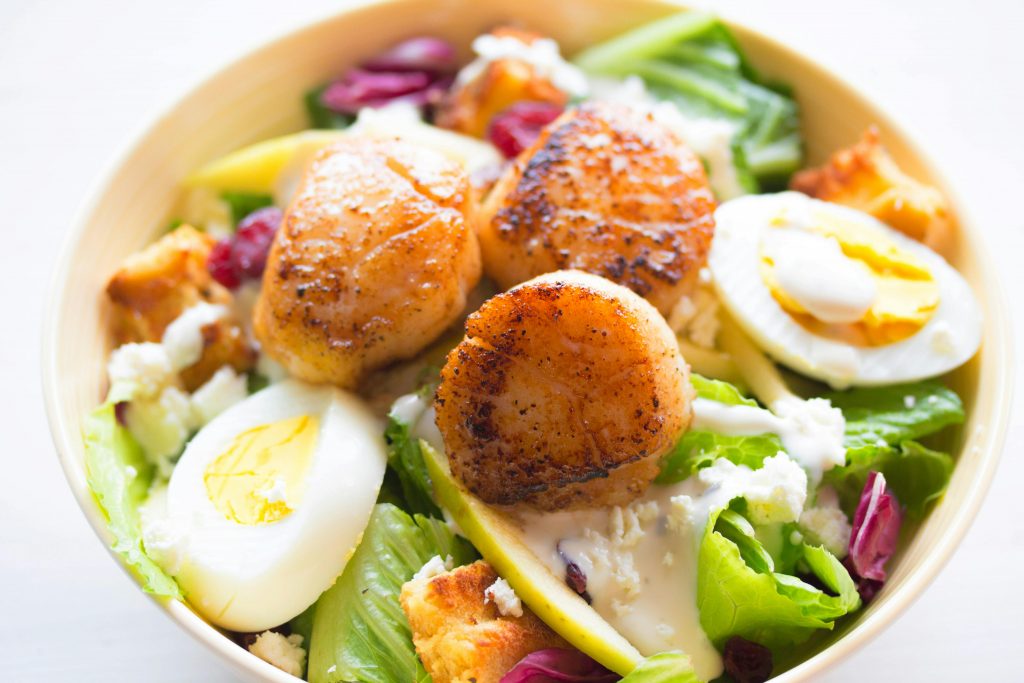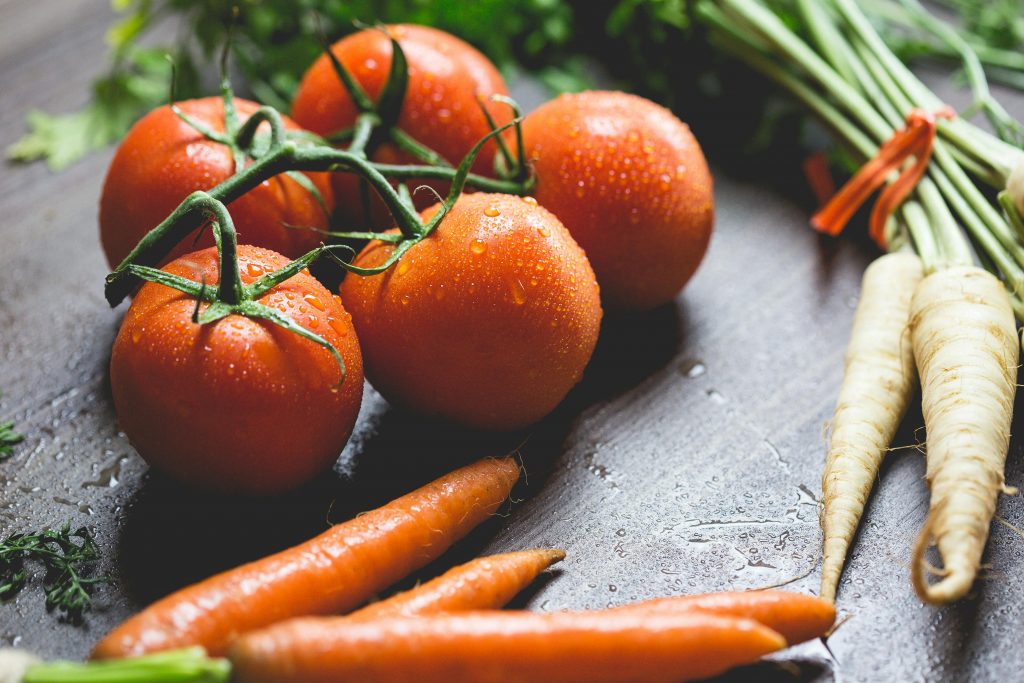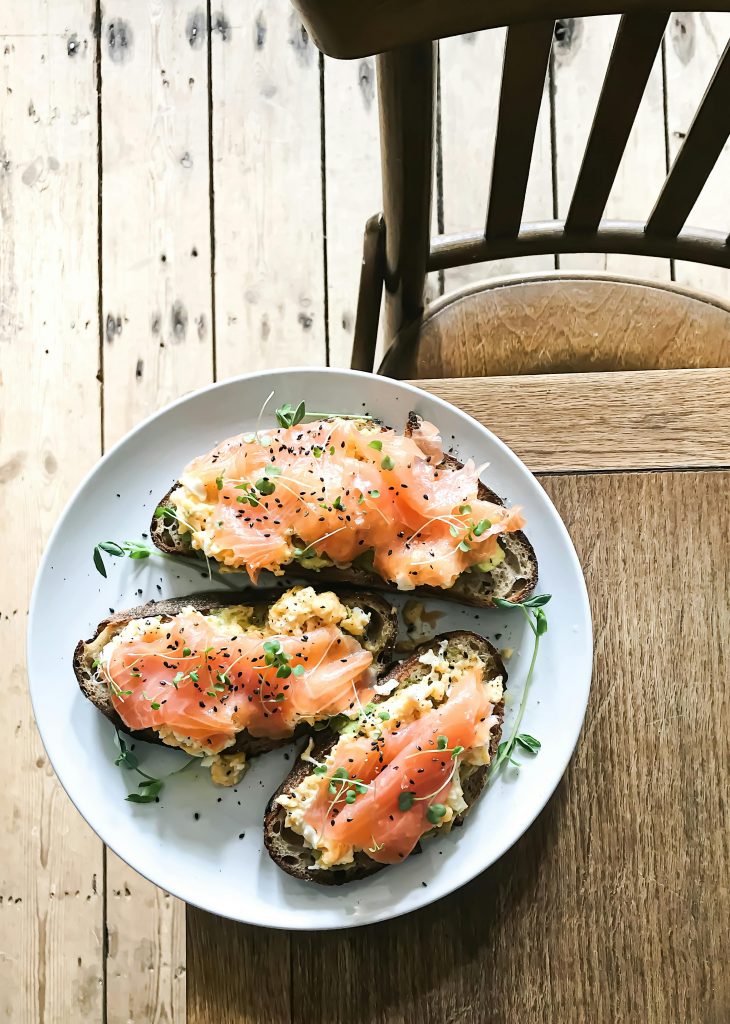The pervading message is that a healthy lifestyle involves eating less meat and fat but more protein bars. If that’s the case, why is nearly half the world’s population obese?
‘There’s a photograph doing the rounds of people on a crowded beach in the ’60s, not one of them overweight. These days, it’s hard to spot those who are slim!’ says Integrative Clinical Nutritionist Sally-Ann Creed, the author of 10 best-selling books, including Real Meal Revolution and Let Food Be Your Medicine. ‘Eating three well-balanced meals with animal protein, healthy fats (from animals, as they did up to 1970) and vegetables is not only healthy but satiating, curbing hunger.’
Our lives are busier now, so it’s more convenient to eat refined carbs – muffins, biscuits, bread – which tend to cause obesity. Add sugar and seed oil to that, and you have the perfect storm. Processed food breeds disease due to lack of nutrition and the toxic way it’s prepared. Societal stress has increased, and elevated cortisol may harm your ability to digest food and absorb micronutrients. It’s no wonder Western society is overfed and undernourished, sick and on multiple medications.

So, we need to return to cooking wholefoods from scratch. You may have heard the term ‘farmacy’, but what does it mean? Food is information for the body. Before medicine, fresh edibles – herbs, plants, even offal – were used medicinally. They include:
- Liver (from a grass-fed animal) is packed with nutrition, including vitamins A and D
- Eggs (from a pasture-reared hen) have all the nutrients in one place
- Whole vegetables, not sliced and pre-packed, but whole
- Fresh, raw nuts and seeds have fibre and fatty acids with some nutrients
- Wild-caught fish, not farmed, has essential fatty acids in their perfect ratio, plus perfect protein
- Sauerkraut, kimchi and fermented vegetables provide probiotics, the other thing missing from the Western diet in its most natural form
- Seaweed is a mineral-dense macroalgae, a good plant source of calcium, iodine, vitamins, beta-carotene and iron.
You’ll notice grains haven’t made the list because they’re usually genetically and laced with herbicides, contain toxic substances like gluten and are highly processed for a longer shelf-life. Limit your portions of lentils and pulses, as they flood the body with inflammatory lectins, which can reduce its ability to absorb nutrients.
Think of the difference between ‘fortified’ or ‘enriched’ cereals – dead food with all the goodness stripped from it – and eggs, which are fully nutritious and nourish the body, leaving you feeling satisfied instead of bloated, not hungry an hour later as grains do.
‘I ferment organic wheat for a day or so before making bread and pizza dough,’ says Lindy Taverner of Reserve Edge Wild Food, which offers foraging workshops in Scarborough, Cape Town. She also harvests protein-rich nori (used in sushi), dries it out to form chips or crushes it to season food. The Welsh boil it and mix it with oats to make laverbread.

For Okinawans in Japan, nuchigusui means ‘medicine of life’, and they believe a balanced diet of plants, protein and superfoods has as much impact on the body as traditional medicines. Okinawa is one of the world’s Blue Zones, areas renowned for long life. Beyond simple nutrition, wholefoods supply additional physiological benefits. It all starts with the gut, which makes many of the body’s neurotransmitters. From there, all the nourishment (or chemicals) travels to the rest of the body and brain. Eating well affects your mood, hormones, how you look, how you feel, how well you sleep and dictates your overall state of health. It’s everything – health and disease begin there. Every time you eat, you change your gut ecology.
Bacteria in the gut respond to food – good grub produces healthy bacteria, which then make short-chain fatty acids, butyrate, and thousands of beneficial compounds, even some vitamins.
‘A Malawian lady told me her family grow their own food, fish in a lake, slaughter their own livestock, raise chickens and eat eggs, and they have perfect teeth and live close to 100.
Rural populations living this way have a massive advantage over city dwellers who eat fast food – you only need look at their dull eyes and overweight bodies and listen to their long list of ailments, aches and pains,’ says Sally-Ann.

‘That’s because fast food is dead food, which causes those healthy bacteria to die, and the unhealthy bacteria and fungus can proliferate, causing brain fog, headaches, weight gain, inflammation, auto–immune conditions … we could go on forever.’
She continues, ‘As a seriously chronic asthmatic, cutting dairy, sugar and wheat from my diet (along with other junk) and eating fresh, real food instead gave me back my health. It’s the same for any condition. If you have an inflammatory condition, remove the inflammatory foods and introduce those that quell inflammation. Turmeric is an excellent spice to use in food to bring down inflammation. The examples are endless, depending on your condition.’
Is there still a place for modern medicine? ‘Acute conditions such as severe depression and cancer require specific medication – there’s a time and place for everything – but if you have a chronic condition, the first step should always be to try to resolve or manage it with food. I don’t believe anyone suffers from a drug deficiency. Nutrient deficiency, yes,’ says Sally-Ann. ‘Often, a person is diagnosed with a mental health condition when all they need is good nutrition. An example is a patient of mine who was heavily medicated for panic attacks. Once I got him off aspartame and a few other toxic substances, he was fine without any medication, and nourishing his brain with nutritious food prevented further panic attacks.’
She warns of a physical price to pay for drugs. ‘They block a particular pathway (such as statin drugs for cholesterol), but in doing so obstruct other crucial processes the body needs to perform that use the same powerful pathway, often resulting in unexpected illnesses and terrible side effects.’
The bottom line is that eating as close to the earth as possible, and getting enough sleep, exercise, fresh air and water are all we need to remain healthy. Remember that not all diets are suitable for everyone – you may be allergic to certain foods – so introduce new food gradually. Consult an expert such as a dietician and peer-reviewed medical journals, not social media. And may cooking simple, fresh food be therapeutic and pleasurable for you.
ALSO SEE: Healthy snacking for kids is key to unlocking their full potential
Healthy snacking for kids is key to unlocking their full potential
Written by Lisa Abdellah for Food&Home Autumn 2024 issue.
Feature image: Pexels

